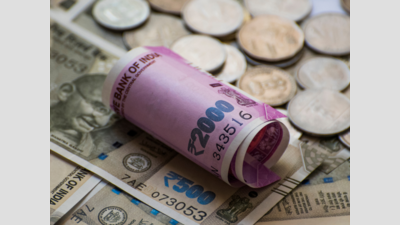MUMBAI: The rupee’s depreciation will increase export competitiveness which, in turn, will impact the economy positively, govt said. In response to a parliament query, govt also said that despite its depreciation against the dollar, the rupee remains one of the best-performing currencies in Asia as others have depreciated more.
Responding to a question from Dinesh Chandra Yadav in Parliament, minister of state for finance Pankaj Chaudhary addressed concerns about the rupee’s value against the dollar. The rupee’s exchange rate is market-determined and influenced by various domestic and global factors, including the Dollar Index, capital flows, interest rates, crude oil prices, and the current account deficit, he said. The minister’s statement comes at a time when there are concerns that the incoming administration of Donald Trump will impose punitive tariffs on China imports and China, in turn, would let the yuan weaken to counter the impact of tariffs.
During 2024, the rupee depreciated by 1.4% against the dollar as of Nov 19. Chaudhary attributed this decline primarily to the broad-based strengthening of the dollar, which saw the Dollar Index rise by 4.8%. He also cited geopolitical tensions in West Asia and uncertainty surrounding the US elections as contributing factors. Despite these pressures, the rupee remains one of Asia’s best-performing currencies. Comparatively, the Japanese yen and South Korean won depreciated by 8.8% and 7.5%, respectively, during the same period.
Regarding the impact on the general public, Chaudhary said that while a weaker rupee can boost export competitiveness, it may also increase the cost of imported goods. The overall effect on domestic prices depends on how much of the increase in international commodity prices is passed on to consumers.
Weaker Rupee to help exports, impact eco positively: Government
17


